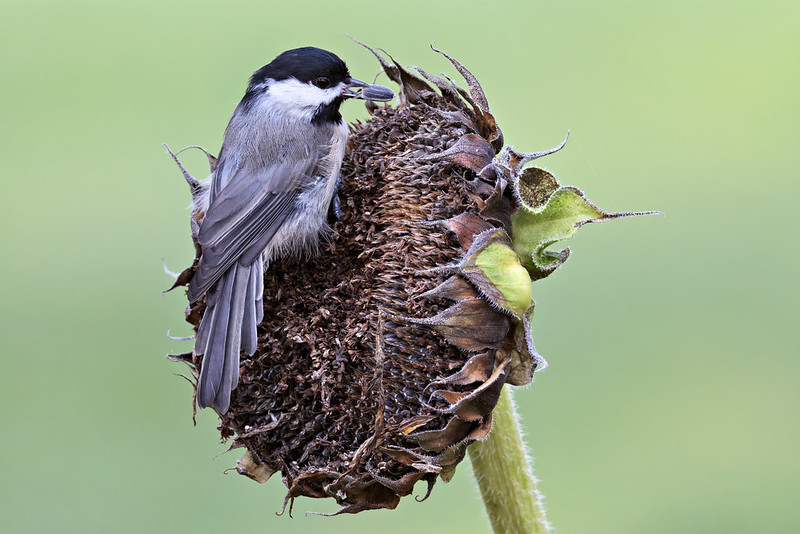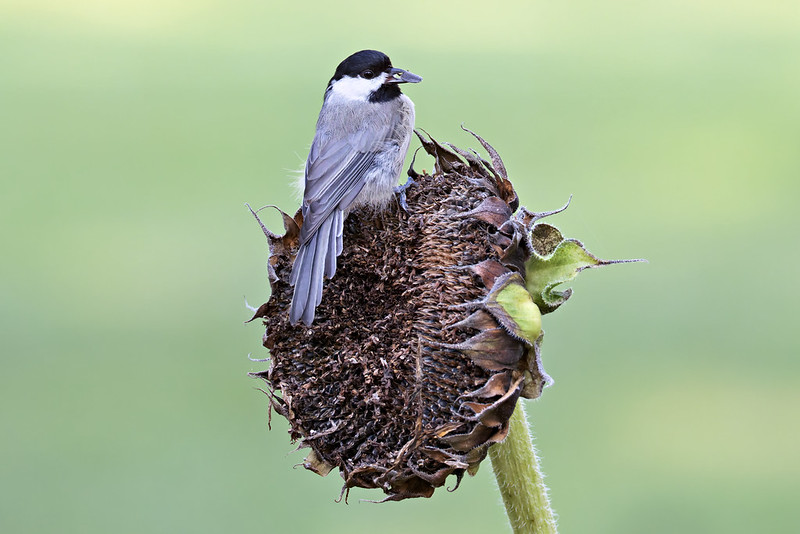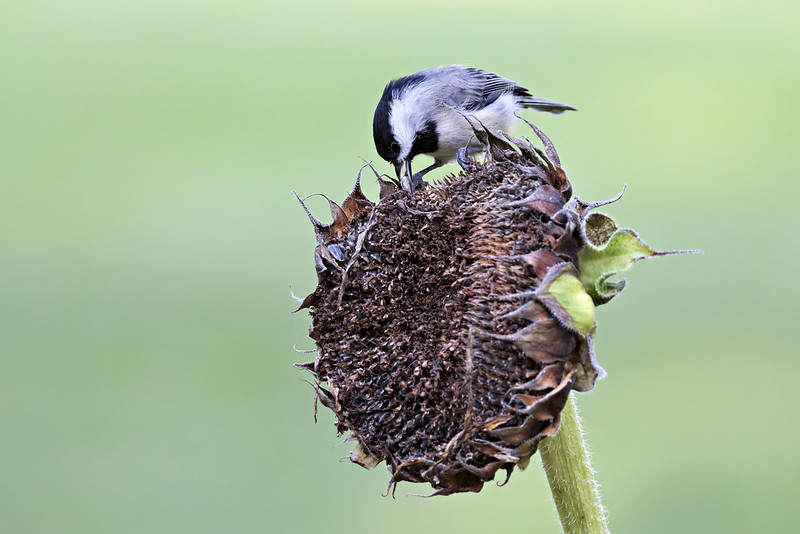Nature has a clever way of coming full circle. In my garden in Arkansas, a sunflower sprouted from a seed a bird dropped while visiting the feeder. Months later, that very plant became a feast for another feathered visitor, a Carolina Chickadee.

A Small Bird With Big Impact
Carolina Chickadees may be tiny, but they are full of energy and intelligence. In the photos above, one perches gracefully on the dried sunflower head, pulling out seeds with precision. Its delicate grip and sharp gaze highlight just how adept these birds are at extracting every last bit of nutrition.
Sunflowers: Bird Feed That Feeds Birds Again

Sunflowers are among the easiest native plants to grow. Interestingly, they often do the job themselves. In this case, a single dropped seed took root and flourished without any help. It served not only as a pollinator magnet during bloom but now provides sustenance for backyard birds as it fades.
This self-seeding cycle shows the interconnectedness of backyard wildlife. What began as birdseed became a living plant, which eventually returned to being food.
Why Chickadees Love Sunflowers

Chickadees are known for caching food and cracking open seeds with their tiny but strong beaks. Sunflower seeds are packed with protein and fat, ideal for energy during cooler months. For a bird like the Carolina Chickadee, a dried sunflower head is a buffet waiting to be explored.
How to Attract Carolina Chickadees to Your Garden
If you’d like to enjoy similar moments, consider these simple steps:
- Plant native sunflowers or let dropped seeds sprout naturally.
- Provide feeders with black oil sunflower seeds.
- Leave seed heads on plants through fall and winter.
- Add native shrubs for cover and nesting.
Creating a bird-friendly yard doesn’t require much, just a bit of patience and a willingness to let nature lead.
Final Thought
Watching this chickadee nibble away at a sunflower it may have helped plant reminds us that even the smallest acts, like dropping a seed, can create a chain of life. Sometimes, nature knows exactly what it’s doing.
